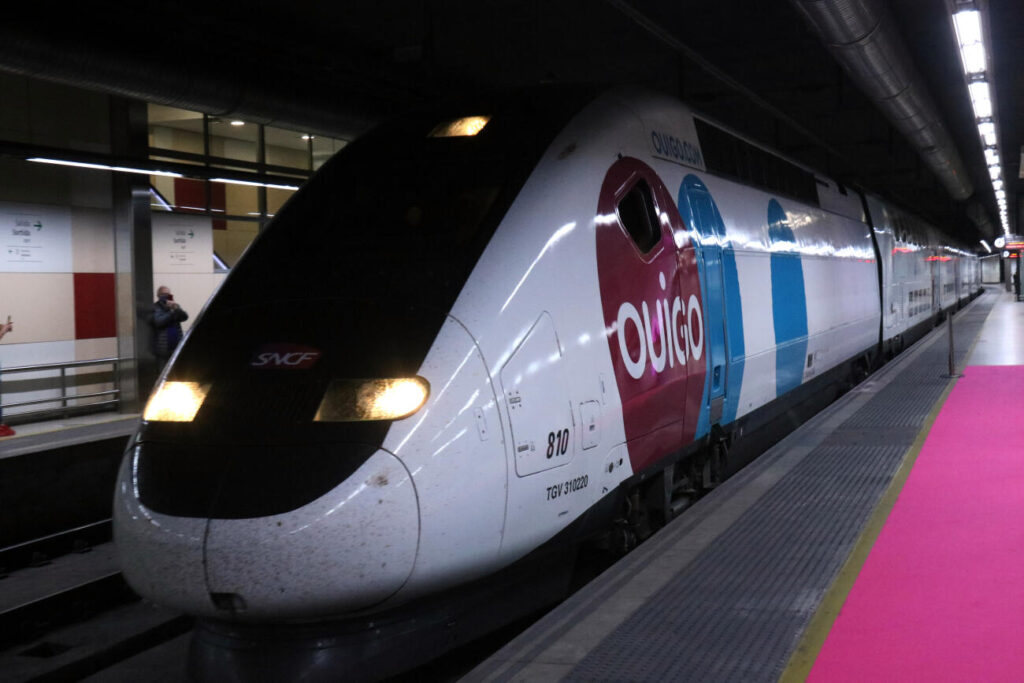10.05.2021 - 09:54
|
Actualització: 10.05.2021 - 11:54
The French rail company Ouigo (SNCF) has launched its high-speed train service between Barcelona and Madrid on Monday, two days after the state of alarm in Spain has ended. The new service run by private company Ouigo will compete with the Spanish state-owned Renfe, which has lost the monopoly after being the only group to operate high-speed travel in Spain since 1992.
The Ouigo train had its maiden voyage on Friday, a return trip from Barcelona to Madrid, with the media and some company executives on board, before beginning to operate for the public on Monday. The tickets are open to everyone, with fares starting from €9 for adults and priced consistently at €5 for children, significantly lower than the standard AVE fares operated by Renfe.
Yet, the state-owned company intends to rival Ouigo in low-cost high-speed trains, and on June 23, the AVLO services will begin to run, with prices starting at €7 per trip. The price includes free luggage of one cabin suitcase and one piece of hand luggage. Passengers can also purchase additional services such as seat selection, ticket cancellations and extra luggage. Children under 14 will have a basic rate of €5 as long as they are accompanied by an adult.
Routes of AVLO and Ouigo
AVLO will initially have four daily trips in each direction between Madrid and Barcelona, a frequency that could be expanded depending on demand. The route will stop in all the cities of the Renfe north-eastern corridor: Guadalajara, Calatayud, Zaragoza, Lleida, Tarragona, Girona and Figueres. Meanwhile, Ouigo will have ten daily departures connecting Barcelona and Madrid in 2 hours and 30 minutes, stopping only at Tarragona and Zaragoza, but not in Lleida or Figueres.
The managing director of Ouigo in Spain, Helène Valenzuela, said that they should generate a local economic impact of around €150m solely from tourism, not to mention the impact which will come from business travel. Valenzuela and the SNCF president, Chistophe Fanichet, have openly celebrated being able to take part in “such a momentous occasion”.
The president of the train service Adif, Isabel Pardo de Vera, commented that the fact that more companies are entering the market is a sign that a “new golden age” for rail travel is on its way. She also highlighted that the train model is “the epicentre of sustainable and connected travel”.
Likewise, the Barcelona deputy mayor and councilor for economy, town planning, infrastructure and mobility, Janet Sanz, stated that the launch of the new service has established the train as the mode of transport for the fight against climate change. “Trains save lives and the economy, they save people and deter pollution,” she added.


